ClevGuard Support: Monitor Devices with Others' Permission.
Artificial Intelligence has taken the tech industry by storm, and people imagine it will take over almost every aspect of their daily lives. It’s not just virtual assistants and chatbots; applications of AI range from personal devices and entertainment to transportation and healthcare. Experts predict that people familiar with AI and ML will be qualified to take most jobs in the next decade. Hence, AI learning for kids is no longer a choice; it’s a necessity, just like the curriculum.
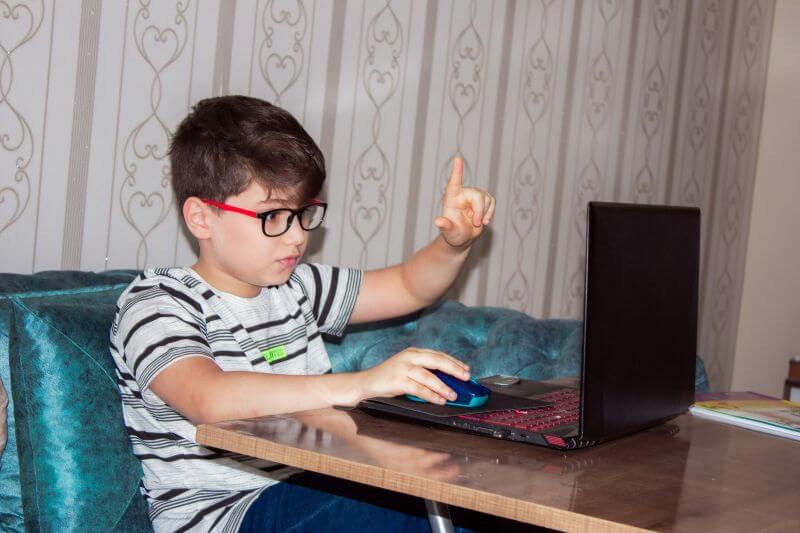
As a parent, your next question might be where your kids can learn AI. Several online and offline platforms and resources help kids understand the basic principles of technology. This guide lists platforms that might be a starting point for your kids' venture into AI learning.
Table of Contents
Part 1. What Is AI Learning for Kids?
Artificial Intelligence (AI) is a computer program that can think and evaluate to solve problems, make decisions, and improve over time. It’s created using coding languages, and understanding it can be complex, especially for kids.
Regardless, considering the potential of AI to change the world and how you live, it can be an essential skill in the future. So, learning AI isn’t just about learning how to code, but preparing kids for a future where AI plays a major role. The following are the benefits of AI learning for kids:
- Future Career Opportunities: From healthcare to education and entertainment, AI has entered almost every sector, and this trend will only continue to grow. The World Economic Forum, in its latest report, predicts that AI will create 34 million jobs by 2030. This means that kids with AI knowledge will have a significant advantage in the future job market.
- Encourages Creativity: AI isn’t just about numbers and coding; it involves a lot of creativity. Creators must think outside the box to design and use AI models in new ways. It’s just like developing a smart home device or a new game, where the scope for creativity is endless.
- Understanding and Working with Data: AI is all about data and how to collect, analyze, and make sense of it. Studying it allows kids to break down big tasks, find patterns, and make sense of the available data to make smarter decisions. That’s useful not only in professional but also in personal lives.
- Real-World Impact: AI is all about the in-hand experience and solving real-world problems, and not reading through the lecture notes and course books. Implementing AI learning for kids helps them apply what they learn in real life. For example, they can simply develop a chatbot or a machine learning model to predict match results or other things.
- Collaboration and Teamwork: Creating something with the help of AI is not a single person’s job. Instead, it involves a team that works in tandem to solve problems, communicate, and delegate tasks. And that’s what your kids will learn when working on AI projects. These skills can be handy in their future career.
Part 2. AI Learning Courses for Kids
If you aim to prepare your kids for the future, so that they can contribute to the greater good, selecting the right AI learning course for kids is crucial. The following are the top AI courses available, so understand what they offer and choose the most suitable one for your child:
- Introduction to AI: Many online courses have recently been designed to provide a basic idea about Artificial Intelligence. Learning how to use AI and apply it practically helps kids swiftly move to more complex AI concepts. The best part about these courses is that they are online and allow kids to understand the basics at home.
- Machine Learning for Kids: ML is a branch of AI that evaluates the available data to analyze and make smart decisions without human intervention. Many online courses are designed to teach the fundamentals of machine learning. These courses help kids train an AI to perform tasks and make smarter decisions.
- Generative AI: Generative AI is a hot topic in the space, with platforms like ChatGPT, Grok AI, DeepSeek, and others. Courses about Gen AI help children understand the basic concepts, how it works, and how it will impact the future. They will also learn to think creatively to get the most out of AI.
- Prompt Engineering Courses: The name might sound very tech-heavy, but it’s a great way to introduce students to chatbots and virtual assistants. These courses teach how to craft a perfect prompt or communicate with AI to achieve the desired outcome.
Part 3. Tools and Resources for Teaching AI to Kids
As a parent, your next question would be where and how to learn AI for kids. Well, that’s not difficult, as many online tools and platforms can make AI learning easy for kids. Here are some of the most reliable platforms available:
1 Create & Learn
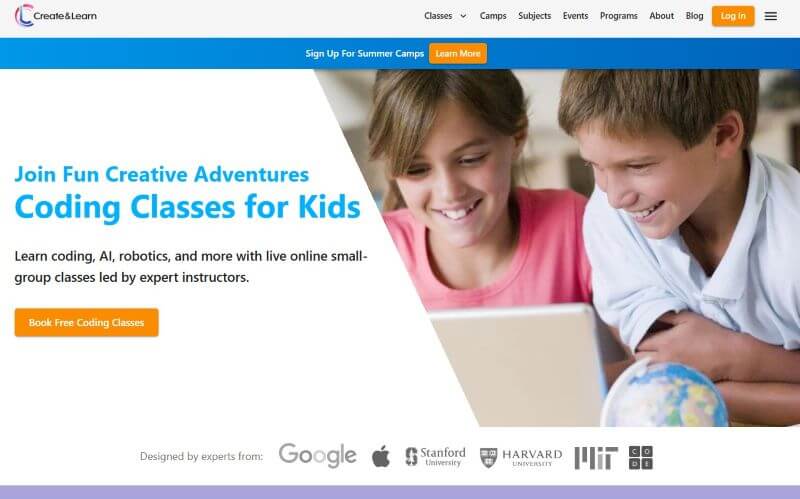
Create & Learn is a dynamic e-learning platform that provides theoretical knowledge and hands-on experience in coding, AI, robotics, and more. From basic to advanced, all types of courses are available for kids. The best part is that parents can attend free introductory classes to ensure their kids enjoy and fully learn AI.
2 AIClub
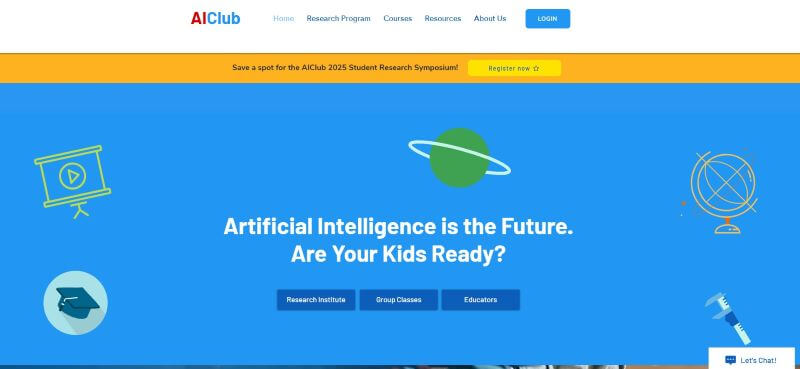
Like Create & Learn, AIClub is an e-learning platform where kids aged eight or more can learn AI and coding. It follows an interactive learning approach that allows the kids to create a portfolio of their AI creations and share it with everyone. This lets them stay ahead of the curve and propels them towards making something groundbreaking.
3 Google Arts & Culture AI Games
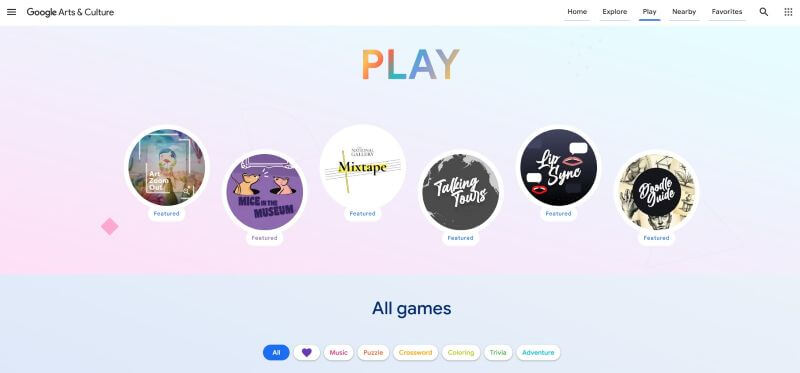
If you feel the online classes can bore your kids, then Google Arts & Culture AI games can be a fun way to introduce AI to them. Games like Quick, Draw, and Say What You See help kids recognize patterns, respond to inputs, and craft precise and clear prompts.
4 aiEDU
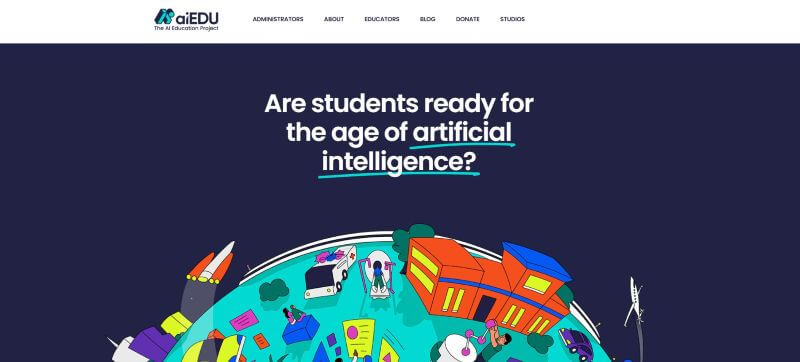
If you’re an educator looking for comprehensive AI learning resources, aiEDU might be right for you. The materials are structured and easy to follow, and they involve kids in simulations to help them better understand the implications of AI in the real world.
5 Magic School AI
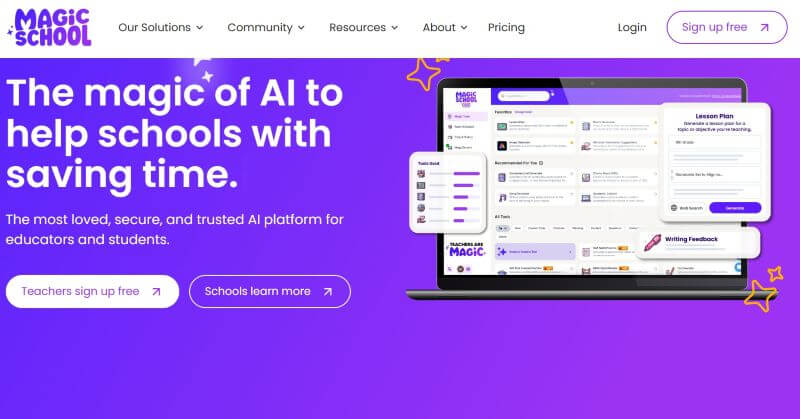
Magic School AI is designed to provide hands-on AI learning for kids. Educators can create a MagicStudent virtual room with curated AI tools. These tools can check grammar, generate ideas, or create something. Kids can freely explore these tools within set boundaries. This way, they can learn how such tools work and stay safe at the same time.
Part 4. Tips for Parents and Educators
AI can potentially transform your child's future, but responsible usage is crucial. Parents must play a key role in guiding their kids’ interaction with AI and fostering healthy digital habits.
1How to Support AI Learning
To support and create a positive AI learning environment at home, the following tips can be helpful:
Set up a Dedicated Learning Space: Kids are easily distracted, so they might end up watching out of the window, playing, or shifting their attention somewhere else. Creating a learning space for kids is the first step toward focused learning. It’ll be an area where your kid can experiment with coding or engage in hands-on activities, which helps maintain focus and boosts a learning experience.
Encourage Kids to Explore: Celebrate your child’s curiosity and encourage them to explore new ideas and ask questions about AI tools and concepts. You can also provide them with new and safe AI tools to explore and ask them to be creative with their use.
Learn Together: Don’t be conscious about sitting beside your kid and learning together. Discuss what they’ve learned, new ideas, and collaborate on projects. This allows them to understand the AI better and strengthens your bond with them.
Connect with Communities: Go on social media and seek out communities where parents share a similar mindset and teach their kids elementary AI knowledge. You can participate in meetups, workshops, and similar events to help exchange knowledge and provide access to additional resources.
2Monitor Kids’ AI Usage
Learning and exploring AI offers several benefits for kids but it involves risks like overdependency, overuse, exposure to inappropriate content, and data privacy concerns. You must engage in responsible parenting to ensure your kids are safe from such dangers and safe AI learning.
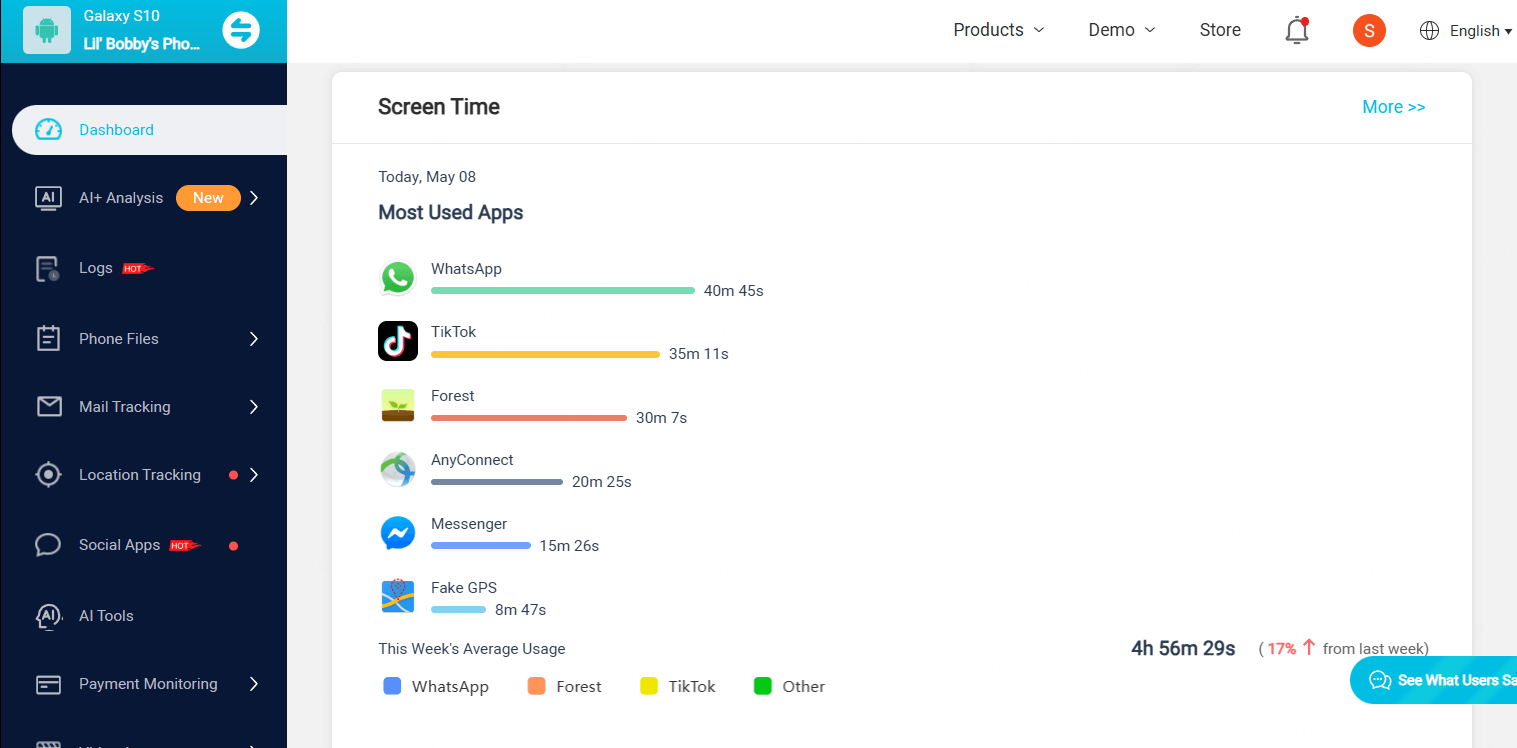
Parental control apps like KidsGuard Pro allow parents to monitor their kids’ digital activities and ensure they use AI tools safely and productively. Its real-time monitoring feature provides parents with a detailed insight into their kids’ app usage, website visits, and takes necessary steps to foster a positive digital environment.
Other key features include
- Real-Time Monitoring: An AI-generated content isn’t always reliable or age-appropriate. KidsGuard Pro lets you monitor what your kids use the AI for, take screenshots, and lock the display anytime.
- Check Browser History: Provides a detailed list of the visited websites, including URL, visit time, titles, and frequency.
- Keylogger: Stay updated with the interactions your kids make with the AI, including the prompts, questions asked, and other conversations. This feature details everything your kids type on the keyboard.
- Keyword Alert: Obtain alerts on inappropriate or sensitive keywords your kids use.
- Location Tracking: KidsGuard Pro provides a real-time update on your kids' location and sets a restricted zone.
FAQs about AI Leaning for Kids
How do I teach my child AI?
To ensure your kids become well-versed in AI, introduce the basics, using relatable examples like autonomous vehicles, voice assistants, or similar. Then, encourage them to think critically, explore AI together, and discuss how AI can be used ethically and fairly.
How to explain AI to a 10-year-old?
You can explain AI to a 10-year-old like this: An AI is like a smart helper on a computer. It can learn from the questions you ask and pictures you show it, and then try to do things by itself.
What is the best AI tutor for kids?
There’s no best AI tutor for kids, and the choice depends on their age, learning style, and specific needs. However, Create & Learn, AIClub, and aiEDU are popular AI learning platforms for kids.
What is the minimum age for AI?
There isn’t a universal minimum age for AI, but it’s recommended that parents provide their children with AI learning through fun activities and games at age 7- 8.
Conclusion
At a time when AI is rapidly evolving into a disruptive technology, parents should understand the importance of AI learning for kids. The day is not far when AI knowledge will be paramount to getting a job. Therefore, selecting the right platform, encouraging kids to explore, and learning together are essential to ensure effective learning.
However, like most technology, AI usage has risks like exposure to inappropriate content, privacy breach, and over-dependency. So, as a responsible parent, it’s essential to keep an eye on what your kids are using AI for, and there is no better tool than KidsGuard Pro. Its features, like real-time monitoring, screenshots, keylogger, keyword alerts, and more, help establish a positive digital life. So, use it now and ensure safe AI usage!



